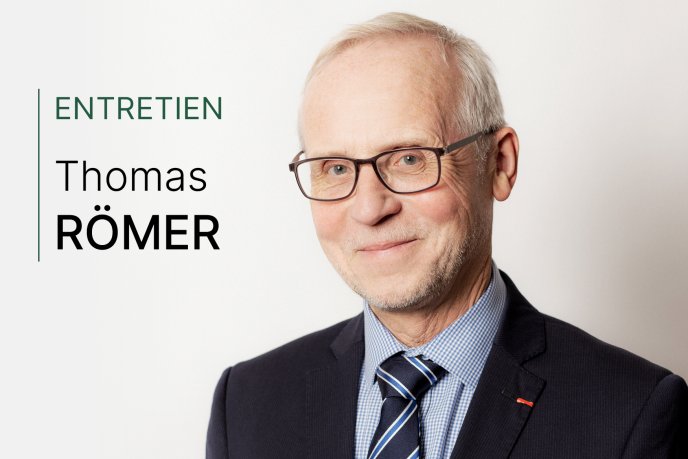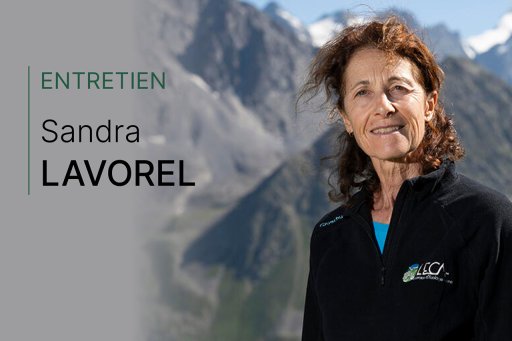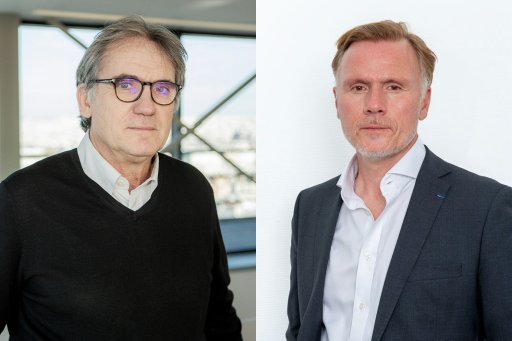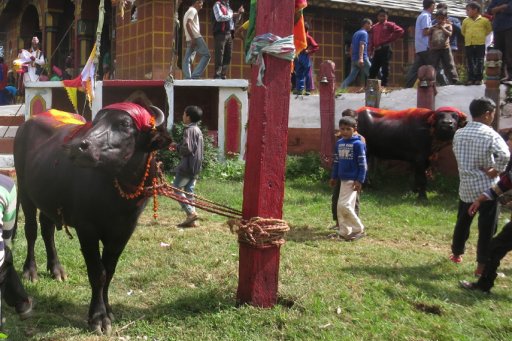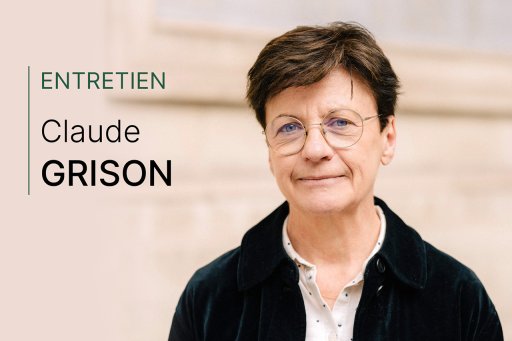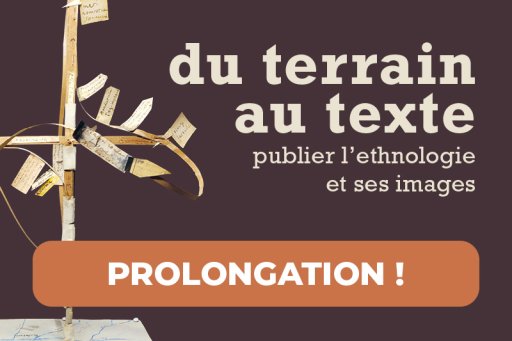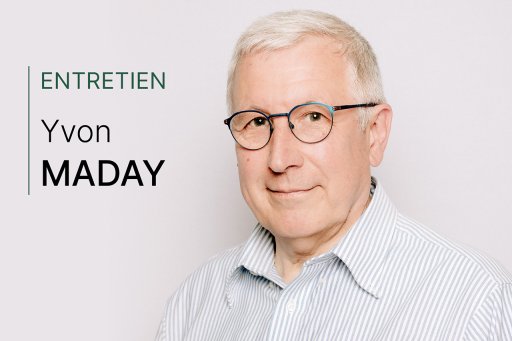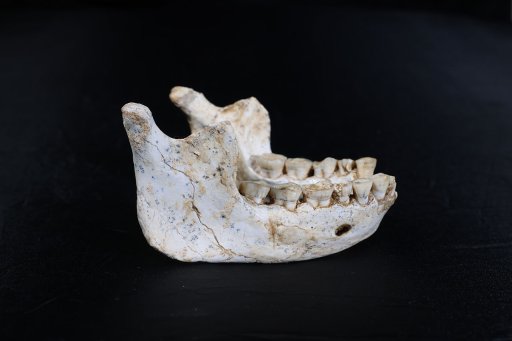Reappointed for a third term as Chairman of the Collège de France on 1stSeptember 2025, Thomas Römer looks back on his academic career and the workings of this unique institution created under François Ist . He also looks ahead to the challenges it faces in the years ahead.
In 2007, you became a professor at the Collège de France. How did your recruitment go ?
Thomas Römer : I was a professor in Lausanne when I got the call. The person I spoke to, a professor at the Collège de France, said to me : " We're considering a chair in the Hebrew Bible. Would you be interested in a position ? " From there, I had to draw up a kind of curriculum entitled " Titles and works ". This document is around fifty pages long, in which you have to summarize your research, your publications, your vision of the discipline and also how you imagine it should be taught. Then you have to travel to Paris to meet each professor in person, even if you're not yet a candidate, since no chair has yet been created. The election of the professor by the assembly (editor's note : Board of Directors and Academic Council of the Collège de France) only takes place later, when a vacancy notice for the chair has been published by the Minister of Higher Education and Research. The assembly meets three times a year, on the last Sundays of March, June and November. Voting is by secret ballot. The administrator then forwards the candidate proposal resulting from the assembly's election to the Minister. But it's not until the decree of appointment is issued by the President of the Republic and published in the Journal Officiel that you become a professor at the Collège de France.
As a researcher, you describe yourself as " bibliste ". What does this title mean to you, and why is it so important to you ?
In my view, a biblical scholar teaches the Bible in a secular way, by understanding it historically and placing it in its cultural context. My approach is to offer a discourse on the Bible that is as scientific and objective as possible. To achieve this, I draw on a multi-disciplinary approach that draws on philology, history and archaeology.
Until today, in Christianity and especially in the Protestant tradition, there has been a vision of the " immediacy " of the biblical word, which would be directly inspired by the words of God. However, taking a historical distance, as we do with any text from antiquity, is also a way of protecting the Bible against certain misuses.
You became Chairman of the Collège de France in 2019 and have just started your third term in this position. What does it involve ?
The title of Chairman of the Collège de France is a bit misleading. In reality, my role is to lead the institution's policy, chair the faculty assembly and the various internal commissions, and represent the institution in the media and with the official authorities.
It's a job that requires you to be a unifying force and a good listener, even if everyone takes on the role in different ways. Personally, I don't always seek consensus, but I do want everyone to be able to express themselves, and I don't want speech to be censored. I believe that the Chairman of the Collège de France must constantly strive to support collegiality in the directions and decisions taken. I love this job, because it gives me a different view of the institution, allowing me to see what's going on behind the scenes, and to contribute to the further development of its influence. It's not widely publicized, but the Collège de France, in addition to our forty-three professors, employs around one thousand and people spread over three sites, taking into account the research units we host, which contribute to the institution's overall research effort. It is often necessary to anticipate the workload : administrators continue to give lectures and carry out research, and are not exempt from their peers' obligations.
I'm the first foreigner to preside over this institution, and that's also a source of pride for me. I like the idea of unconditional access to knowledge, transmitted to all, without discrimination and free of charge, especially as, in the current context, scientific truth is a pillar that must be defended.
What qualities do you think a good candidate for a professorship at the Collège de France should possess?
A good candidate is first and foremost a very good researcher. You need to be involved in academic research, to be able to draw on enough content, and to teach a new lecture every year. After all, we don't repeat the same lectures year after year, unlike at university. It should be noted, and this can sometimes have an impact on the choice of future teachers, that you must be able to give your lectures in French. Note also that there is no succession system for professorships, which are not automatically renewed. Instead, we look for a profile, a person who we feel has a consensus in a scientific field that we feel is important. There's a great deal of freedom when it comes to defining chairs. There may be times when we don't really see who could occupy an existing one, so we turn to another profile and another discipline. We then carry out a discreet survey by writing to certain colleagues to obtain proposals for possible candidates. Taking these opinions into account, but with complete freedom, we finally contact the person who seems most suitable to see if he or she would be interested.
On the other hand, there are no popularity prerequisites. There are some lectures that attract only a handful of audiences, but this is also part of our institution's desire to cover the whole spectrum of knowledge. This may be the case, for example, in less easily accessible disciplines such as fundamental mathematics. And yet, to stay within the field of mathematics, among a professor's select audience, we can sometimes find future Fields Medal winners.
In 2030, the Collège de France will celebrate its five hundredth anniversary. What are your hopes for this milestone ?
When it was founded, the Collège de France was already a college open to the outside world : among the first " lecteurs royaux " (editor's note : the name given to professors when the establishment was created), there were scholars who came from Italy and Wallonia to give their lectures. In the same spirit, it would be wonderful for our five hundredth anniversary to have a kind of federation of colleges at European level. Collège Belgique, for example, was founded in 2009 with our sponsorship. And recently, a partnership agreement was signed with Berlin's Humboldt University, one of Germany's leading universities.
The arrival of the five hundredth anniversary is also an opportunity for us to look ahead to what the Collège de France might look like in the next hundred years. What are the major challenges ? How can we better convey knowledge ? Should we stick to an hour-long lecture format ? How can videos and podcasts of lectures be made even more widely available? Should we physically teach outside Paris ? The idea is beginning to emerge that by 2030 we could be giving more of our lectures in the regions. The question of parity is also being raised ; we want to move towards more women on the teaching staff, for example by asking our colleagues in charge of proposing candidates for a new chair to systematically put forward one man and one woman. In general, it's a question of being sensitive to these questions of parity, at all levels of the establishment. We would also like to hire young researchers who could be, in a way, the College of tomorrow, and give them the opportunity to come and work and give lectures with us for a period of two or three years. I think our strength lies in this academic excellence, but also in our ability to adapt, despite crises and upheavals.
Of course, one of our greatest challenges remains that of providing financial support for research and disseminating research results. We are supported by patrons, major donors and foundations, but we need to further strengthen our sponsorship and find other sources of funding. In France, this is not a common practice, as we live in a country where the State largely supports public establishments. Asking for money is not very common in the academic world, unlike in Anglo-Saxon countries, where the major American universities rely heavily on endowment funds and patrons. It's a long-term project, and I'll be working hard on it again over the next few years.
Interview by Emmanuelle Picaud

